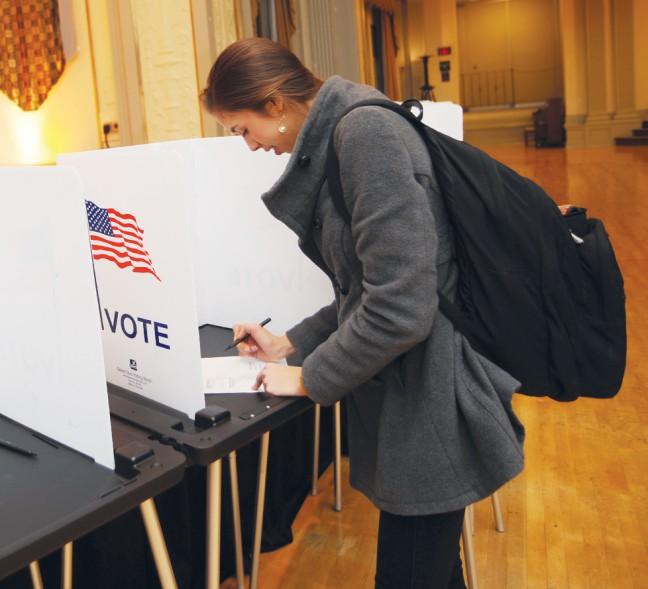The U.S. Supreme Court has blocked implementation of Wisconsin’s voter ID law, reversing an appeals court decision that had reinstated the law in time for the November elections.
In an order late Thursday, the Supreme Court stopped the state from implementing the law until the case moves through the court.
The law, which requires all voters to show a valid form of ID to cast a ballot, was officially upheld by the appeals court panel this week. The panel had reinstated the law in September but did not officially rule on the case until Monday.
The American Civil Liberties Union sued against the law, and on Tuesday asked the Supreme Court to issue an emergency ruling blocking the law’s implementation.
The Supreme Court said it’s waiting on a “timely filing and disposition” from the ACLU where the organization would ask the Supreme Court to take up their case.
If the ACLU submits that request, the Supreme Court will then consider whether it will take up the case. If the court refuses to take it up, then the court’s order blocking the law “shall terminate automatically.”
But if the high court decides to hear the case, then Thursday’s order will stay in place until the court makes a final decision on Wisconsin’s voter ID law, the six justices in the majority wrote.
Three justices on the court’s conservative wing, Justices Samuel Alito, Antonin Scalia and Clarence Thomas, dissented on the ruling.
The three justices did, however, raise concerns over the appeals court reinstating the law so close to an election, noting that several clerks across the state had already sent out absentee ballots without any instructions on voter ID.
“There is colorable basis for the Court’s decision due to the proximity of the upcoming general election,” Alito wrote in the dissent, which Scalia and Thomas joined. “It is particularly troubling that absentee ballots have been sent out without any notation that proof of photo identification must be submitted.”
Wisconsin Attorney General J.B. Van Hollen, a Republican, said he thinks the law is constitutional and that “nothing in the Court’s order suggests otherwise.”
“Instead, the Court may have been concerned that even with the extraordinary efforts of the clerks, absentee ballots that were distributed before the 7th Circuit declared the law valid might not be counted,” Van Hollen said in a statement. “We will be exploring alternatives to address the Court’s concern and have voter ID on election day.”
Dale Ho, director of the ACLU’s Voting Rights Project, hailed the Supreme Court’s order in a statement.
“Today’s order puts the brakes on the last-minute disruption and voter chaos created by this law going into effect so close to the election,” Ho said. “It will help safeguard the vote for thousands of Wisconsinites as this case makes its way through the courts.”
U.S. Rep. Mark Pocan, meanwhile, said in a statement “poorly implementing a bad law would have been the worst possible outcome for Wisconsin voters.”
Gov. Scott Walker signed the voter ID law in May 2011, and the voter ID requirement was in place for a spring primary election in February 2012, before multiple legal challenges kept the law from being implemented.
Walker has said the law “makes it easier to vote and harder to cheat.”
“Voter ID is a common sense reform that protects the integrity of our voting process,” Walker said in a September statement. “It’s important that voters have confidence in the system.”
After the appeals court reinstated the voter ID law in September, election officials began scrambling to implement the law with only a few weeks to go until the Nov. 4 elections.
The University of Wisconsin has been issuing special IDs for students who lack proper identification, since the current student identification cards lack specific information that makes them invalid for voting under the law.


